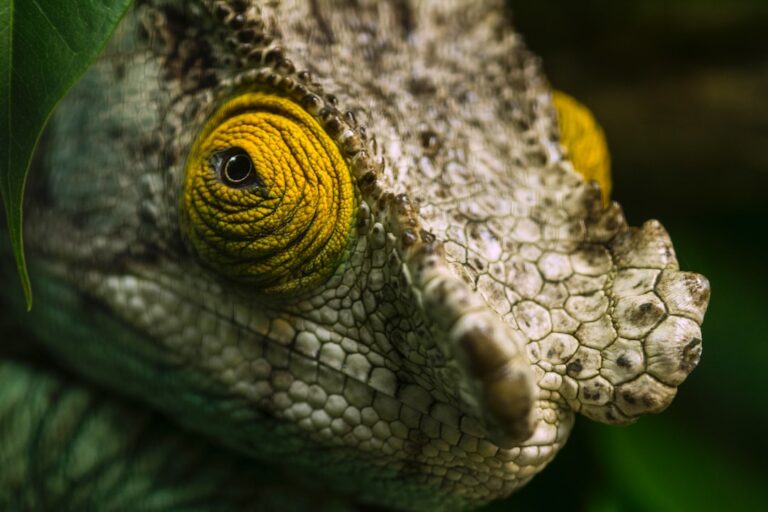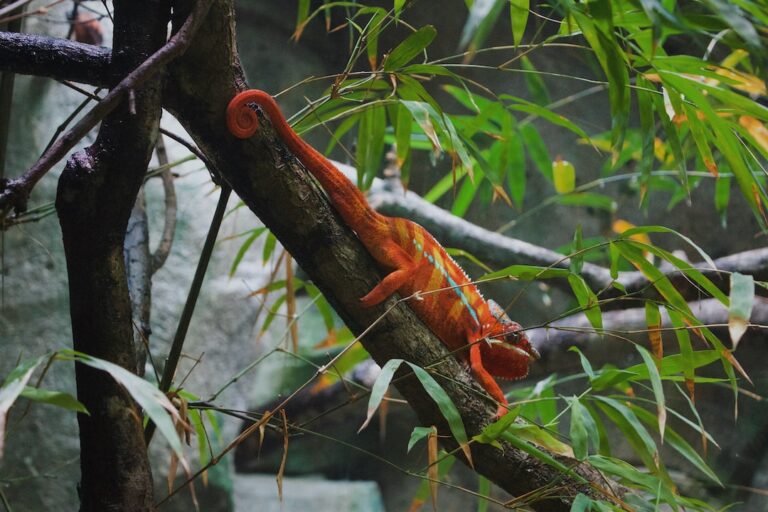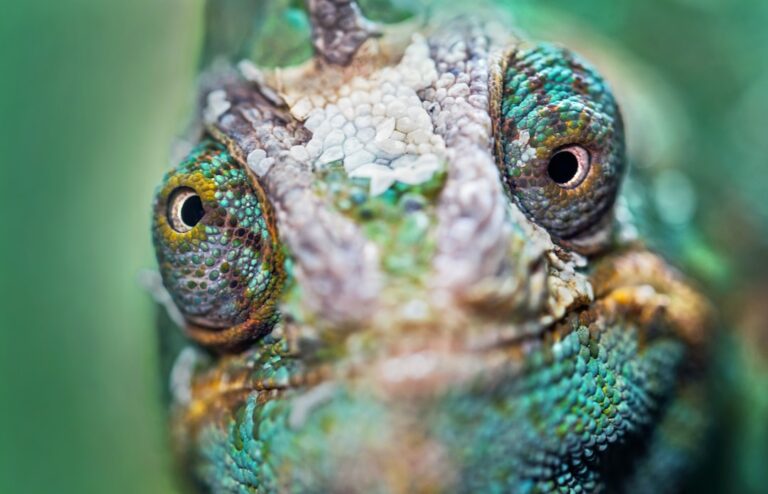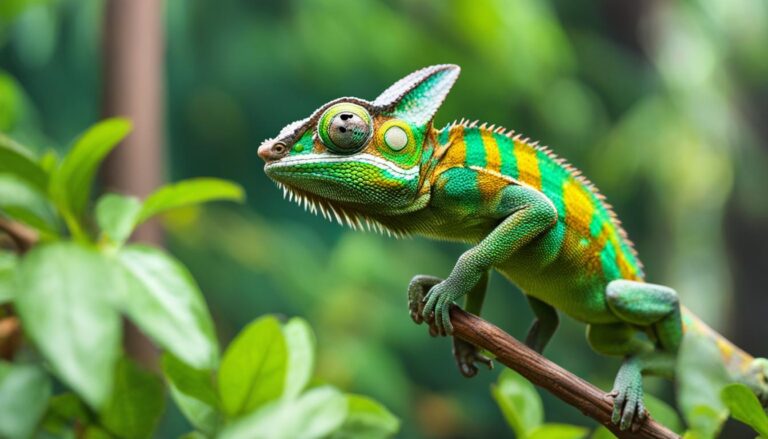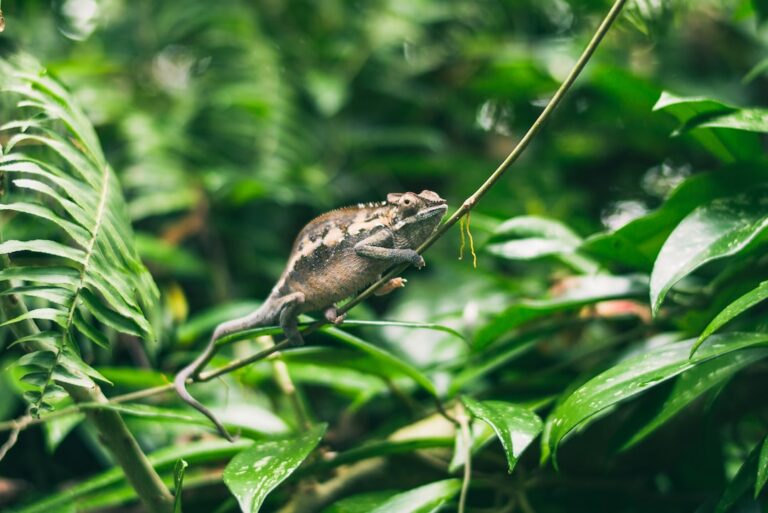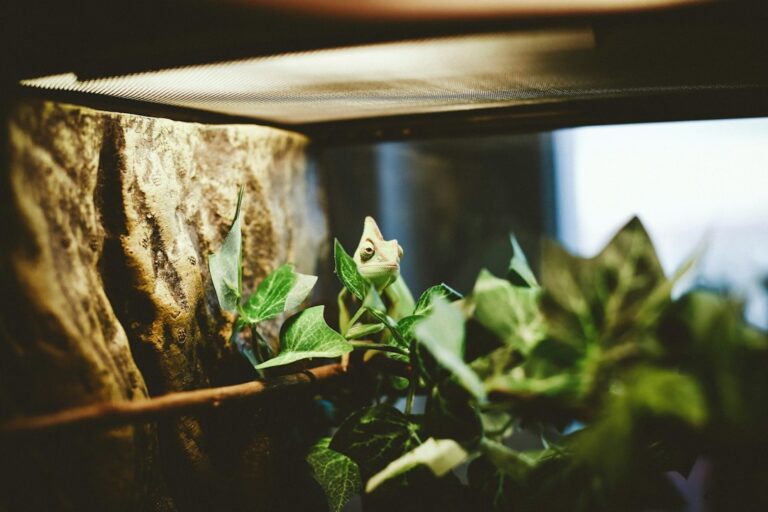Do Chameleons Eat Their Babies?
Chameleons are fascinating creatures known for their ability to change color and blend into their surroundings. They belong to the family Chamaeleonidae and are native to Africa, Madagascar, and parts of southern Europe, Asia, and the Middle East. Chameleons have unique characteristics that set them apart from other reptiles. They have a prehensile tail, independently moving eyes, and specialized feet that allow them to grip onto branches and climb with ease.
Chameleons are primarily arboreal, meaning they spend most of their time in trees. They have a slow and deliberate movement, which helps them blend in with their environment and avoid predators. Chameleons are also known for their ability to change color. Contrary to popular belief, chameleons do not change color to match their surroundings. Instead, they change color in response to temperature, light, mood, and social signals.
Table of Contents
Understanding chameleon reproduction and parenting
Chameleons have a unique reproductive process that differs from other reptiles. They are oviparous, meaning they lay eggs rather than giving birth to live young. The female chameleon will lay a clutch of eggs in a hole or burrow she has dug in the ground. The number of eggs in a clutch can vary depending on the species, but it is typically between 10-40 eggs.
Once the eggs are laid, the female chameleon does not provide any further care or protection for them. The eggs are left to develop on their own, relying on the surrounding environment for warmth and humidity. The incubation period can range from several weeks to several months, depending on the species.
Common misconceptions about chameleons and their offspring
There are several common misconceptions about chameleons and their offspring that need to be addressed. One of the most prevalent myths is that chameleons abandon their eggs or offspring. This is not true. While it is true that female chameleons do not provide any direct care for their eggs or offspring, they do play an important role in protecting them.
Another misconception is that chameleons eat their own eggs or offspring. This is also false. Chameleons are not cannibalistic and do not view their eggs or offspring as a food source. In fact, they are more likely to view them as a potential threat and will avoid them.
Do chameleons abandon their eggs or offspring?
As mentioned earlier, female chameleons do not provide any direct care for their eggs or offspring. However, this does not mean that they abandon them. Female chameleons carefully select a suitable location to lay their eggs, such as a hole or burrow in the ground. This provides some protection from predators and helps maintain the optimal temperature and humidity for egg development.
Once the eggs are laid, the female chameleon will leave the area and return to her normal activities. She may continue to live in the same general area, but she does not actively protect or care for the eggs. This behavior is common among reptiles, as they rely on environmental factors for the development of their offspring.
The role of female chameleons in protecting their young
While female chameleons do not provide direct care for their eggs or offspring, they do play an important role in protecting them. By carefully selecting a suitable location to lay their eggs, female chameleons increase the chances of survival for their offspring. The hole or burrow provides some protection from predators and helps maintain the optimal temperature and humidity for egg development.
Female chameleons also use camouflage to protect their eggs. They will often lay their eggs in areas with dense vegetation or under rocks, making it difficult for predators to find them. Additionally, female chameleons may exhibit aggressive behavior towards potential threats, such as other chameleons or predators, to deter them from approaching the eggs.
Do chameleons eat their own eggs or offspring?
Contrary to popular belief, chameleons do not eat their own eggs or offspring. Chameleons are not cannibalistic and do not view their eggs or offspring as a food source. In fact, they are more likely to view them as a potential threat and will avoid them.
Chameleons have a strong instinct to survive and reproduce, and eating their own eggs or offspring would go against this instinct. They invest a lot of energy into producing and laying eggs, so it would be counterproductive for them to consume them.
Factors that may lead to cannibalism in chameleons
While chameleons do not typically engage in cannibalism, there are certain factors that may lead to this behavior. One factor is stress. Chameleons are sensitive creatures and can become stressed in certain situations, such as overcrowding or inadequate habitat conditions. This stress can lead to abnormal behavior, including cannibalism.
Another factor is hunger. If food resources are scarce, chameleons may resort to eating their own eggs or offspring as a last resort. This is a survival mechanism that ensures they have enough energy to survive until more food becomes available.
How chameleons care for their young after hatching
Once the eggs hatch, the baby chameleons are on their own. They must fend for themselves and find food and shelter in order to survive. Baby chameleons are born with all the instincts they need to survive, including hunting and hiding.
Baby chameleons are born fully formed and capable of independent movement. They are miniature versions of their parents and have all the same physical characteristics, including the ability to change color. They will spend their early days hunting small insects and seeking shelter in trees and vegetation.
The importance of proper care and nutrition for chameleon offspring
Proper care and nutrition are crucial for the survival and development of chameleon offspring. Baby chameleons have specific dietary needs and require a varied diet of small insects, such as crickets, fruit flies, and mealworms. It is important to provide them with a balanced diet that includes a variety of prey items to ensure they receive all the necessary nutrients.
In addition to proper nutrition, baby chameleons also require appropriate housing and environmental conditions. They need a well-ventilated enclosure with branches and foliage for climbing and hiding. The enclosure should also have proper lighting and heating to mimic their natural habitat.
Understanding and respecting chameleon behavior and parenting
In conclusion, chameleons are fascinating creatures with unique characteristics and behaviors. While they may not provide direct care for their eggs or offspring, female chameleons play an important role in protecting them. It is important to understand and respect chameleon behavior and parenting habits in order to provide them with the best possible care.
By debunking common misconceptions about chameleons and their offspring, we can gain a better understanding of their natural behaviors and instincts. This knowledge can help us create suitable environments for chameleons in captivity and ensure their well-being.
Overall, chameleons are remarkable creatures that deserve our admiration and respect. By understanding their behavior and providing them with proper care, we can help ensure their survival for generations to come.
If you’re curious about the fascinating behaviors of chameleons, you might also be interested in learning why chameleons rock back and forth. This intriguing article from Reptile Friend explores the reasons behind this peculiar behavior and provides insights into the world of these mesmerizing creatures. Discover the secrets behind chameleons’ rocking motion by clicking here.


